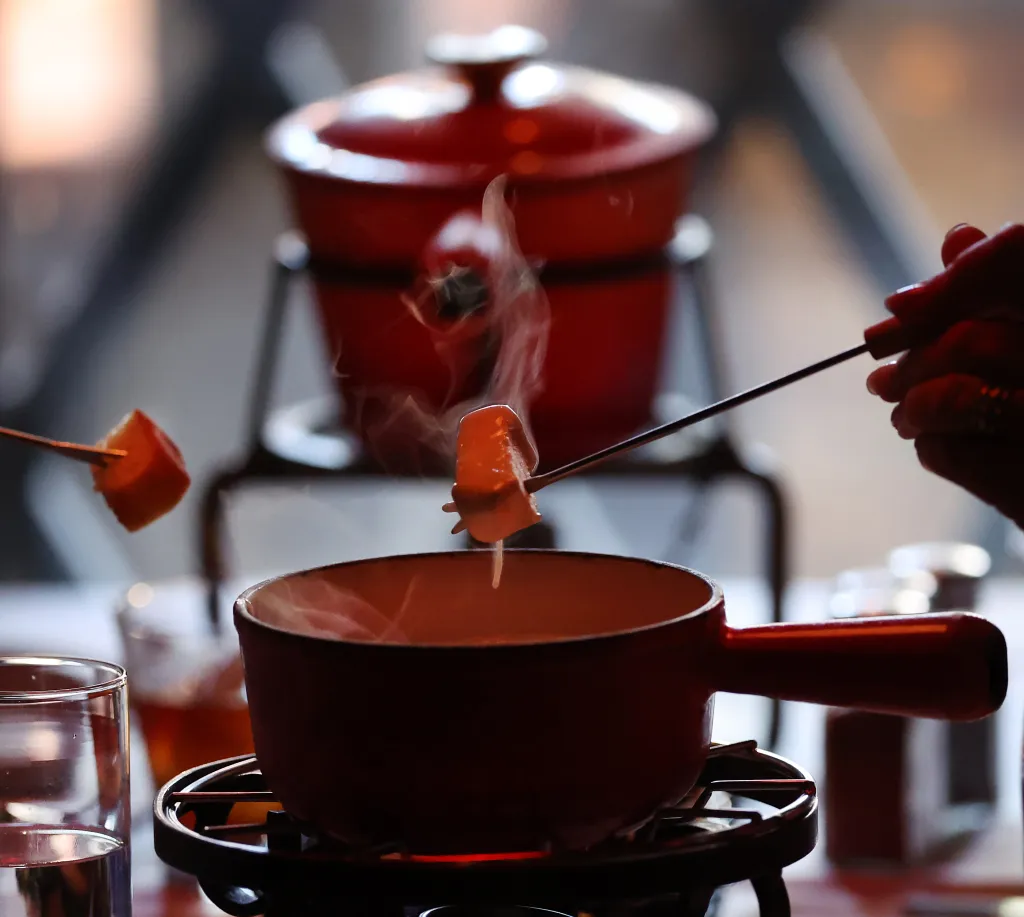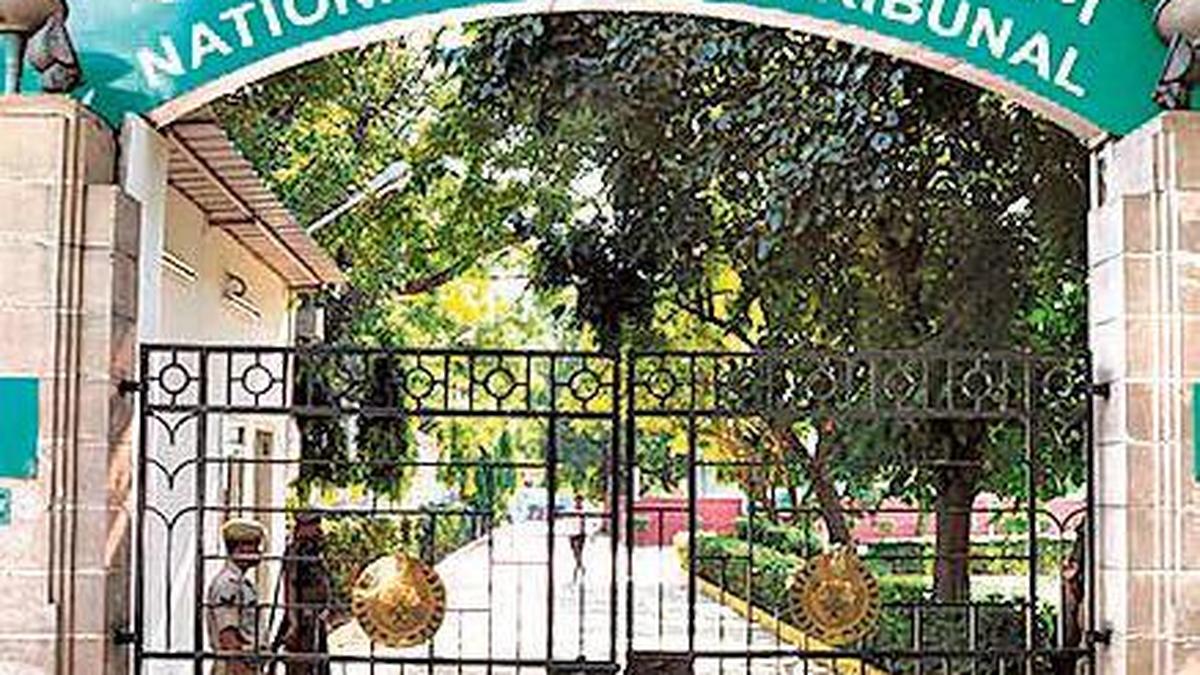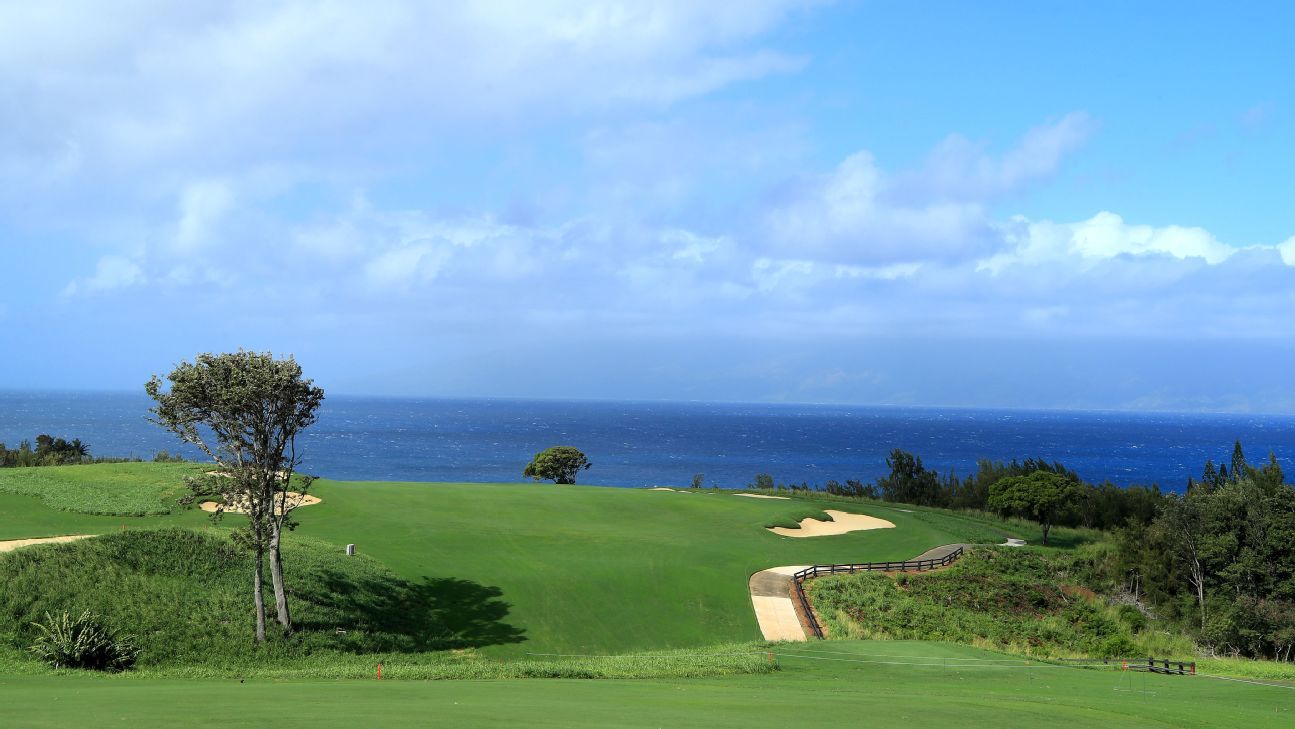
Tucked a few steps below street level, Geja’s Cafe surrounds guests in cocoon-like intimacy, where flamenco or classical guitarists serenade softly and candlelight trembles on tables, creating an atmosphere at once inviting, romantic and timeless. It’s a restaurant designed for romance, though just as welcoming to friendships and families.
Jeff and Darla Lawler, proprietors of Geja’s Café, are celebrating the restaurant’s 60th anniversary. Heralded as Switzerland’s national dish, fondue began in the 19th century with little more than bread and vegetables swirled in molten cheese. Later came fondue with beef cooked in hot oil, and eventually chocolate fondue with fruits for dipping. Geja’s embraces all three traditions — cheese, beef and chocolate — turning every meal into a shared celebration.
While the atmosphere in many European fondue stubes is more like beer halls with communal tables, lively jostling and sometimes raucous camaraderie, Geja’s is designed for intimacy — private dining and whispered conversations. Whether in a huge hall or a cozy restaurant, the hands-on experience of eating fondue fosters connections, transforming dinner into something shared and memorable.
Perhaps that’s why USA Today readers once crowned Geja’s “America’s Most Romantic Restaurant.” The Lawlers, after all, have presided over 500 couples becoming engaged over pots of bubbling cheese.
Earlier this year, the Lawlers invited guests who discovered Geja’s over the decades to write about their experiences at Chicago’s premier fondue spot. The responses were warm and heartfelt:
“My most recent trip to Geja’s felt magical; I sat there, reflecting on all of the decades I spent there; I grew into the old woman I am, I could see myself through the years; falling in love, and becoming a mom, excited to bring my grown-up children there.” — Lorrie Nash (1970s)
“The highlight of the evening came after our meal. Marc, with a twinkle in his eye, got down on one knee and proposed. The entire restaurant seemed to pause in that moment. Diners around us watched with smiles, and soon the room was filled with applause and cheers. It felt like a scene from a movie, with everyone sharing in our joy. That night at Geja’s Cafe was more than just a dinner; it was the beginning of a new chapter in our lives.” — Erin and Marc Menet (2000s)
“It all started in August 2014. Three friends — bound not by romance but by a love of fondue and each other — made Geja’s their tradition. Three times a year, we return, always starting at the bar for a drink and crackers with bar cheese. Geja’s isn’t just for couples. It’s for friendships that stand the test of time, life, and a whole lot of cheese.” — Megan Wallace (2010s)
By the end of 2025, for its diamond anniversary, Geja’s is adding 1,300 square feet of dining space. For Jeff Lawler, “this expansion is not just about creating more room — it’s about preserving and enhancing the magic that has made Geja’s special for six decades.”
Lawler was the longtime managing partner of Geja’s before he bought the restaurant in 2015 from founder John Davis.
Reflecting on his original vision for the restaurant, Davis remarked, “When I opened Geja’s, I hoped to create a place where people could connect and unwind over good food and wine. To see it not only survive but thrive for 60 years is truly humbling.”
In the early 1960s, before Old Town glowed with glitzy nightlife, my family piled into our station wagon for an urban safari to Wells Street, hoping to glimpse the enigmatic beatniks we’d seen photos of in Life magazine. We did and we were mesmerized: cigarette smoke curled against the winter air, black turtlenecks clung stylishly against the chill, paperbacks in back pockets (no doubt Ginsberg or Kerouac) and berets tilted just so.
By mid-decade, the Beats had faded, and a tsunami of hippies flooded Old Town with head shops and psychedelic energy. It was during this cultural upheaval that Davis launched Geja’s, and he remembers “revolution was in the air; at that time, we were a nation of whiskey and beer drinkers; drinking wine was almost subversive.” Davis, however, was very big on wines, specifically those from California, and six years later, Geja’s found its permanent home in Lincoln Park.
In the early 1980s, as California wines were beginning to command global respect, Davis founded a wine club. The timing was right: the legendary 1976 “Judgment of Paris” had shocked the world by ranking California reds and whites above the French classics. Each month, the club delivered two modestly priced California wines, with exotic names such as pinot noir and sauvignon blanc. We cooked, tasted, learned, and before long, our adventures in food and wine would lead us to Geja’s for our first cheese fondue.
Fondue’s popularity once ran so hot that no wedding in the 1970s was complete without a fondue set (we received two). Later, the craze cooled, and icons such as Fondue Stube and the Melting Pot in River North shuttered. But nostalgia is powerful: writing in the International Journal of Gastronomy and Food Science, Oxford University’s Charles Spence observed that “The nostalgic, reassuring element of fondue may be particularly appropriate at the present time … of local/global uncertainty.”
After 9/11 many of us huddled in our homes, but Lawler recalls, many also returned to Geja’s because such an event helped people “see how fragile life can be, and they want to connect with people they love at their favorite restaurants. For many, that was Geja’s. Fondue brings people together.”
When first dining at Geja’s as a young, budget-conscious college professor, the restaurant seemed an affordable luxury. Even today, two can enjoy cheese fondue, salads and wine for around $100. Add in the romance and the history of a restaurant that’s older than many of its diners, and you have one of Chicago’s most enduring culinary treasures, serving memories, with love, laughter, and … much cheese.
Geja’s Cafe, 340 W. Armitage Ave.; 773-281-9101; gejascafe.com
David Hammond is a freelance writer.



